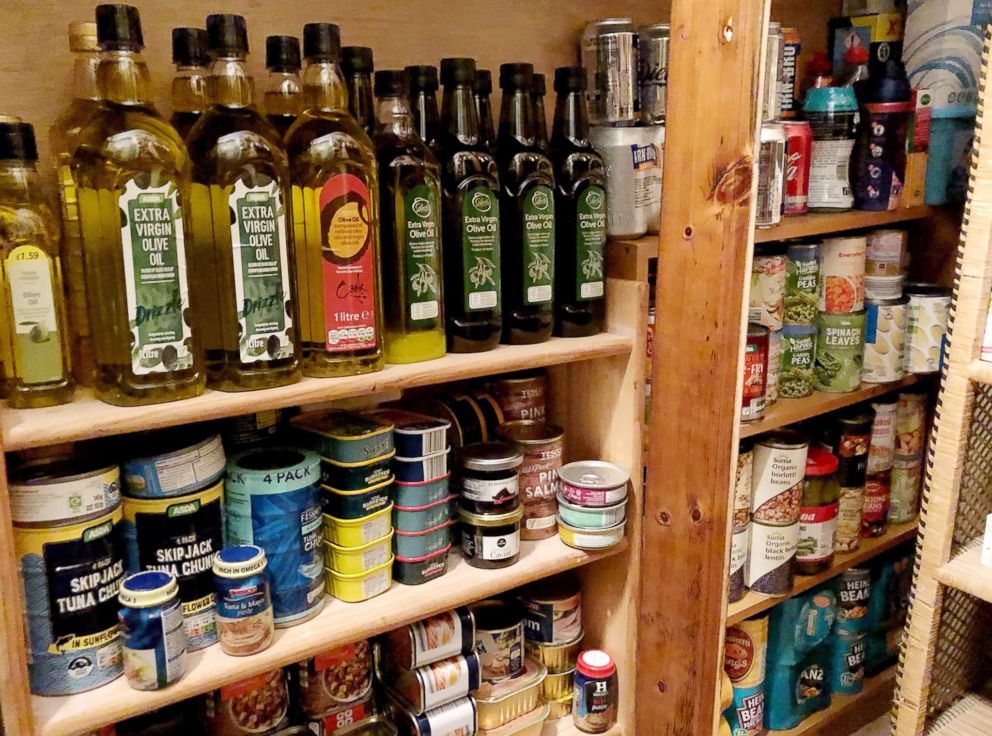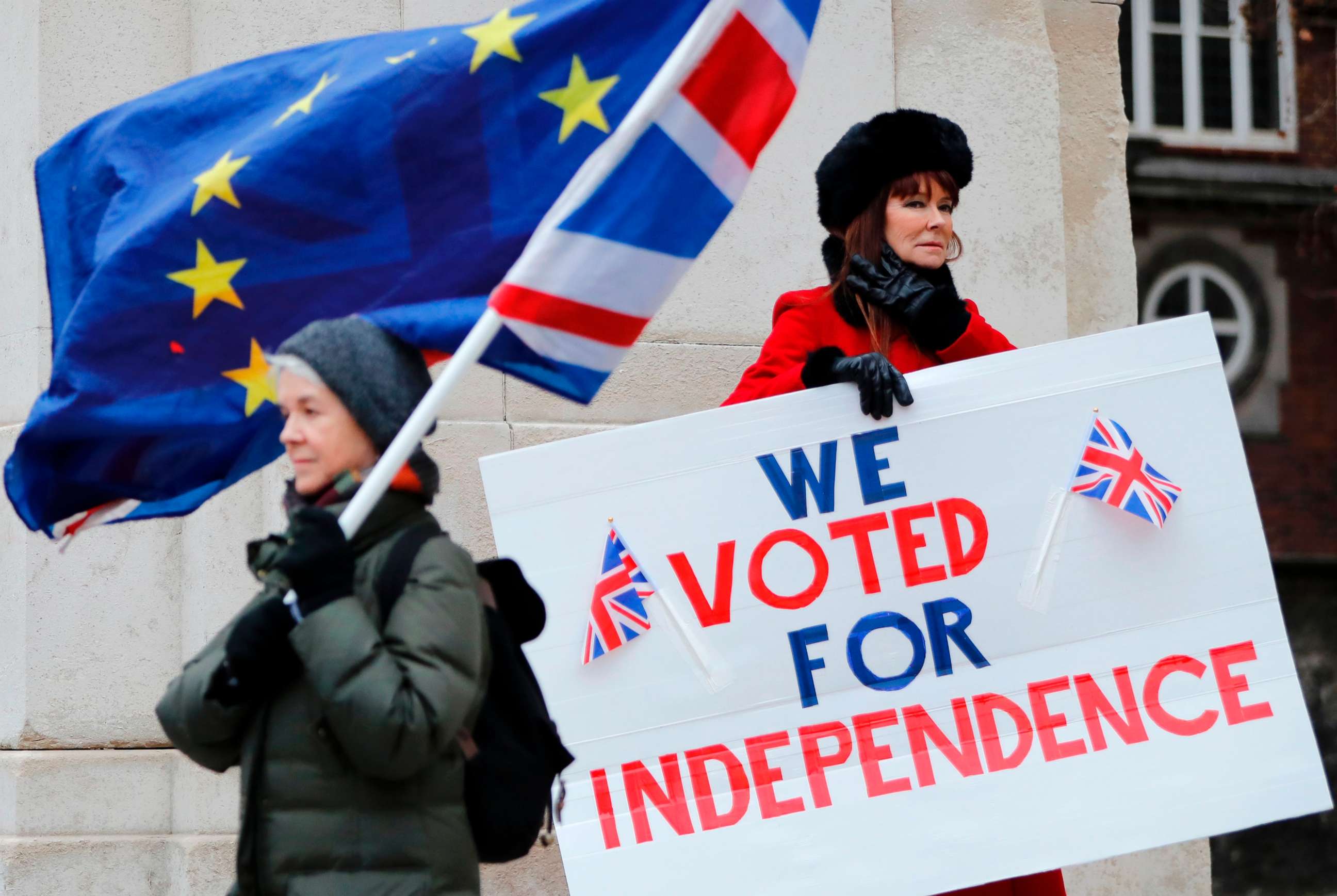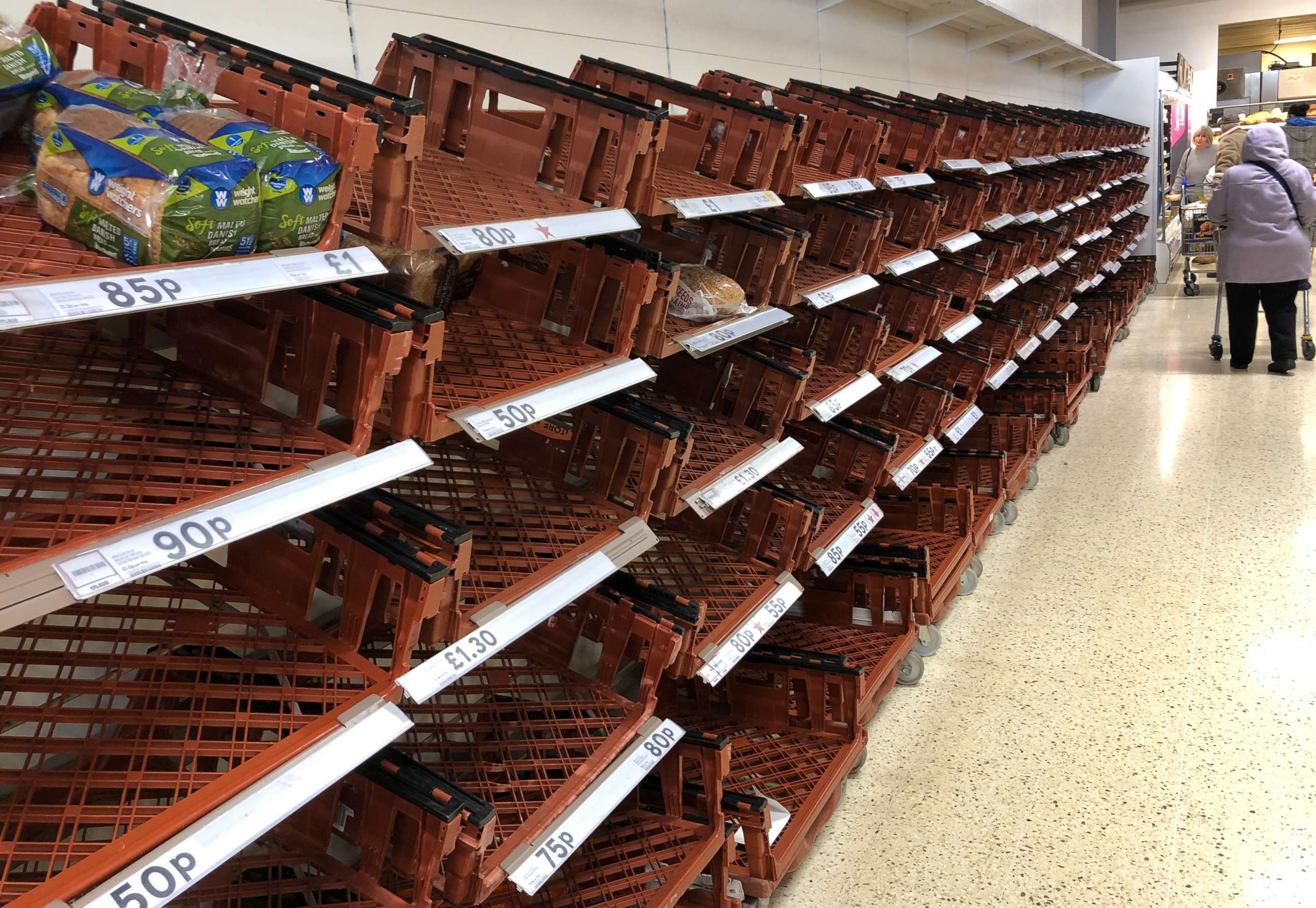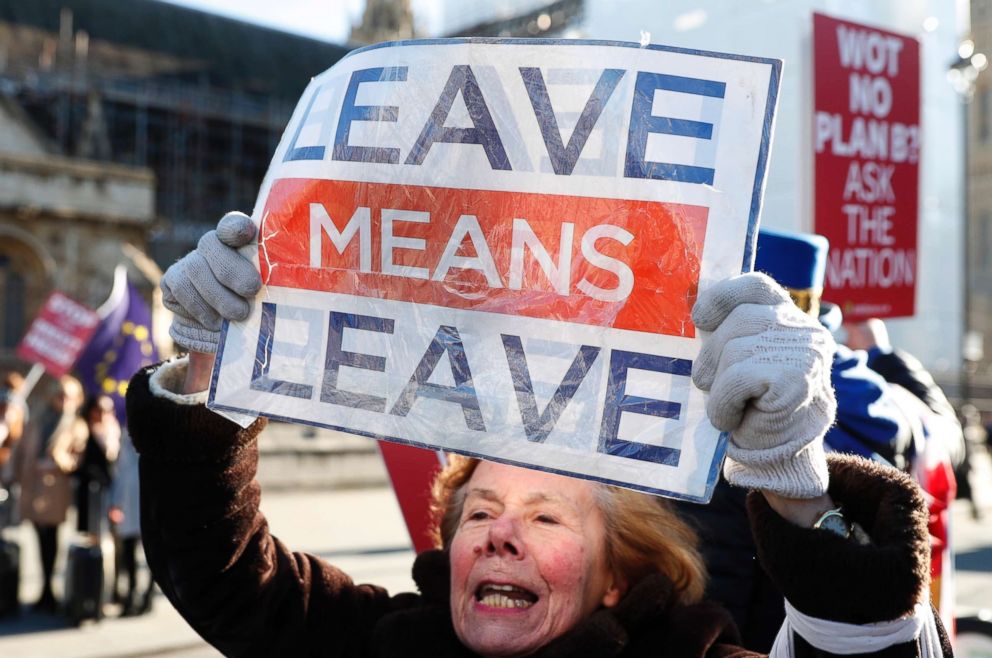UK residents stockpile food, medicine and supplies over Brexit fears
This small but growing group has been nicknamed "Brexit Preppers."
LONDON -- The potential impact of Brexit continues to dominate the news agenda in the U.K., and with only weeks left before the country is scheduled to depart from the European Union, the country seems more divided – and uncertain – than ever before.
In response, a small but growing group of people known as “Brexit Preppers” have taken matters into their own hands – stockpiling foods, medicines and supplies they fear will be restricted if Britain continues down its current path.
One such "prepper" is Andrew Rawson, a family man in the British countryside who self-published a guide to stockpiling: Preparing for Brexit: How to Survive the Food Shortages."

“Although I was already a prepper, prepping for Brexit required a lot of thought and planning in terms of what I should get, where would be best to get it from, organizing it and storing it,” Rawson told ABC News. “I thought this would be really daunting for people who hadn’t prepped before and many people might want to do it but not know where to start.”
Prime Minister Theresa May has so far been unable to agree to a deal with lawmakers for exiting the EU. On Jan. 15 her deal was defeated by a majority of 230 votes – meaning only a third of members of Parliament voted for it. A no-deal scenario is now more likely.

Rawson himself has amassed around six months worth of supplies for his family. His guide also advises readers to not necessarily tell everyone about their prepping “in case food shortages become a real problem.”
He is not alone. One Facebook group, 48% Preppers, has over 7,000 members. The 48% refers to the percentage of the British population that voted to remain in the European Union in 2016.
Rawson himself first began “prepping” last June.
"I had thought about it for a while and hoped I wouldn’t need to but by then the news articles were becoming more worrying in terms of the potential effects of No Deal on food supplies and prices," he said.
He admits that he would “love to be totally wrong.”
“I can’t predict what will happen but based on the research I think … the majority of people are underestimating how this could affect them personally,” he said.
Rawson is well-informed on how dependent Britain is on imported foods and medicines. If no agreement is reached, EU products that once entered Britain for free would be hit with significant tariffs.
The BBC reported this month that pharmacists are struggling to obtain many common medicines. Farming leaders told the government a “no-deal” would be “catastrophic” for U.K. food supplies, according to The Guardian. Last weekend, The Times revealed that plans are being considered to declare a state of emergency and introduce martial law in the event of “no-deal.”

Some leading advocates for Brexit believe that these warnings are exaggerated and that the U.K. will be able to successfully adapt even without a deal.
But the latest warning came from the British Retail Consortium. It suggested in a Jan. 28 letter that there would be “significant disruption in the short term” to the U.K.’s food industry if a deal was not reached.
The signatories included the CEOs of food industry heavyweights like KFC, McDonald's and major supermarket chains.
“I feel it is more dangerous for people to think prepping is an overreaction and find out too late that it wasn’t,” Rawson said.
Above all, he and the other “preppers” are looking to secure their families’ future.

A spokesperson for the Department of Food and Agriculture told ABC News that the U.K. had a “high level of food security” regardless of the Brexit outcome.
But as warnings of the potential impact of “no-deal” make headlines on a seemingly daily basis, it is perhaps understandable why people are concerned.
ABC News' Sophia Wenzler contributed to this report.




